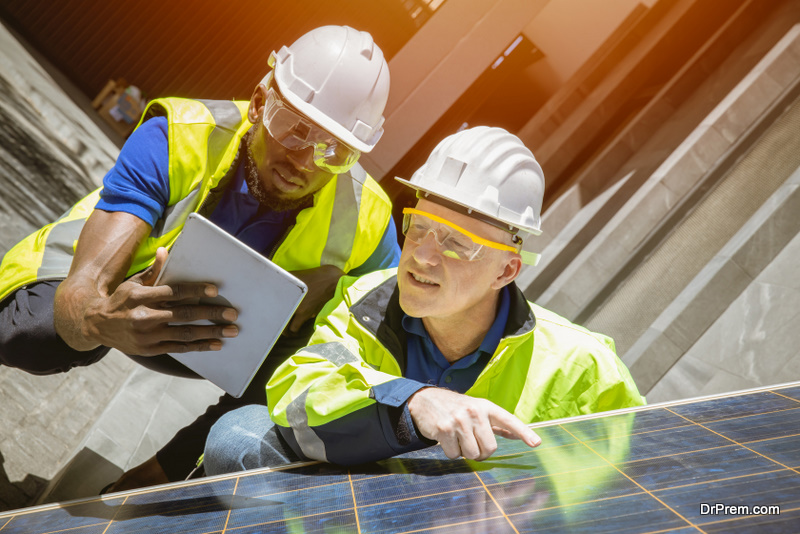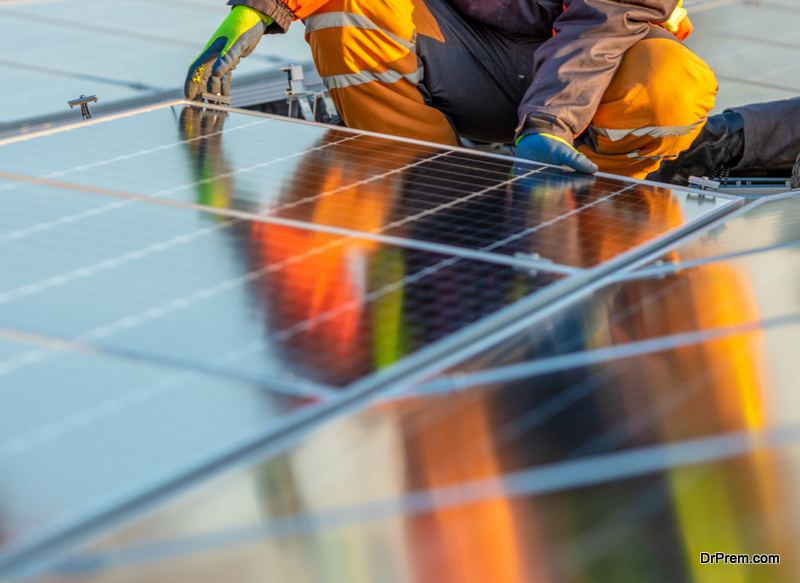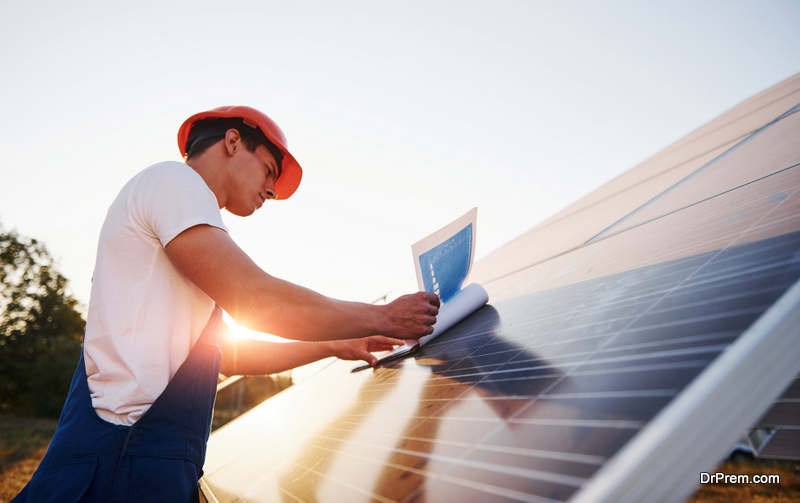Solar energy is a more environmentally friendly alternative to conventional energy sources. People are more open to switching to solar energy now that they know the negative impacts of fossil fuels. Solar is an excellent solution since it is more accessible than other renewable energy sources such as wind.
Some individuals are concerned about switching to solar since it is pretty expensive. However, financing solutions are available to help you buy a solar system. Nonetheless, investing in solar is good for the environment. An eco-friendly home with solar power may be more valuable on the market. So, it’s an investment worth considering.
Once you’ve decided to go solar, you must formulate a plan. It would be preferable if you worked with a contractor from the start. They will help you design a solar system for your home. Solar system design and installation are best left to the experts.
For a more comprehensive guide, here’s a complete guide to setting up a solar power system.
1. Choose a Contractor
You must select a trustworthy contractor for your project. While specific components of the installation are do-it-yourself (DIY) ready, the majority need to be simplified and require the services of a professional.
Going with a local contractor is advisable because they’ll be more accessible. For example, consider Bex Solar Colorado or others as one of your options if you live in that area.
Your contractor should also assist you in developing designs for the solar system. Remember that your home is unique. Thus, it will necessitate a tailored approach for optimal efficiency. Therefore, you must also ensure that you hire one with expert designers.
2. Conduct Energy Audit
You must first evaluate your energy requirements to invest in the right system. It is something that you could do on your own. You can use prior electricity bills as a reference. However, it is preferable if you delegate this task to the contractor. Contractors can evaluate other technical elements that you might overlook.
3. Determine System Size

Determining your energy requirements is critical because contractors use this information to determine which system is most appropriate for you. You don’t want a system that’s too big or small. But one that is just the perfect size. Furthermore, the number of solar panels required, the type of battery, and other system components, such as inverters, will be determined by your energy requirements.
4. Consider Your Budget
Before buying, you must know the costs of investing in a solar system. Solar systems are available in a variety of configurations at different prices. Furthermore, the pricing may vary depending on the size of the method you choose to purchase. Nevertheless, it’s essential to always stay within your budget.
Solar systems are on the pricey side. It is especially true if you’re going entirely off the grid. But understand that it’s okay to start small. You may always upgrade your system in the future. Alternatively, you could explore alternative financing methods like borrowing or renting if you believe you can afford them.
5. Purchase System Parts
Once you’re clear on the budget, you must purchase all the required tools and parts. Your contractor should be able to offer suggestions on what is needed. Wiring, an inverter, a battery, solar panels, and other components may be required.
6. Check For Incentives

Some governments are providing incentives in the form of solar tax credits to encourage individuals to convert to solar. You should note that these incentives are only available in some states or regions. So, you want to determine whether they are available in your area. If so, see if you are eligible for any of the incentives. These save you significant money during the procurement and installation process.
7. Consider Laws and Regulations
Before installing your solar system, understand your state or region’s solar rules and regulations. You may need to obtain a permit before proceeding with the installation. Permits may be essential, especially if you’re required to stay connected to the grid (grid-connected solar systems).
When you employ grid-connected solar systems, the solar system will power the house when the sun shines. But during the night, grid power kicks in. This system is excellent since it reduces the need for batteries. However, you must continue paying your utility bills.
However, you’re good to go if no permits are required. It means you’ll be able to go completely off-grid or hybrid without any issues. Nevertheless, don’t work with assumptions. Conduct diligent research to ensure that you’re compliant.
Conclusion
If you’re considering installing solar, you should seek a reputable solar company. There are several factors to consider throughout the setup. So it’s not something you want to do yourself. Professionals have the knowledge and expertise to choose and install a solar system for you.
Even though solar systems are expensive, realize that starting small is okay. You may always begin with hybrid systems and upgrade to a whole solar system. Remember to always stick within your budget because it’s easy to upgrade your system. However, requesting that your contractor design an upgradeable solar system from the beginning may be prudent.
Article Submitted By Community Writer




